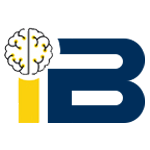

iBrain Technology offers best PHP Training in Bhubaneswar with most experienced professionals. Our Instructors and Developers are working in PHP and related technologies with 10+ years of experience. We are aware of industry needs and we are offering PHP Training in Bhubaneswar in more practical way. Our team of PHP trainers/developers offers PHP in Classroom training, PHP Online Training and PHP Corporate Training services. We have framed our syllabus to match with the real world requirements and as per industry standards for both beginner level to advanced level. Our training will be handled in either weekday or weekends program depends on participants requirement.
We do offer Fast-Track PHP Training, One-to-One PHP Training in Bhubaneswar. Here are the major topics we cover under this PHP course Syllabus Introduction of Web & PHP, First Steps, Exploring Data Types, Control Structures: Logical Expressions, Control Structures: Loops, User-Defined Functions, Debugging, Building Web Pages with PHP, Working with Forms and Form Data, Working with Cookies and Sessions, MySQL Basics, Application CRUD, Building the Public Area, Advanced PHP Techniques, Sending Emails. Every topic will be covered in mostly practical way with examples.
Core PHP is the basic root of all PHP frameworks(MVC) and is the basic fundamental base of any website development. In-order to be a successful software developer should have the basic knowledge of Core PHP to you can easily adopt with any of its frameworks. Our team of experienced developers has the expertise in core PHP and can help gain more knowledge in the language. Learning the technology is not a difficult task but working in a team with spirit enhances your capability to deliver more and that’s what you exactly need to be a successful Software Developer. With us you not only get to learn the technology but a team to work with on-live projects.
Module 1: Introduction to PHP
Module 2: Taking User Input Forms via PHP
Module 3: Variables and Expressions in PHP
Module 4: PHP Operators
Module 5: Conditional Tests and Events in PHP
Module 6: PHP Flow Control
Module 7: PHP Configuration
Module 8: PHP Functions
Module 9: Storing Data in Arrays using PHP
Module 10: Handling Databases with PHP
Module 11: String Manipulation in PHP
Module 12: Sessions and Cookies in PHP
Module 13: File Handling
Module 14: Object Orientation in PHP
Module 15: Handling Email with PHP